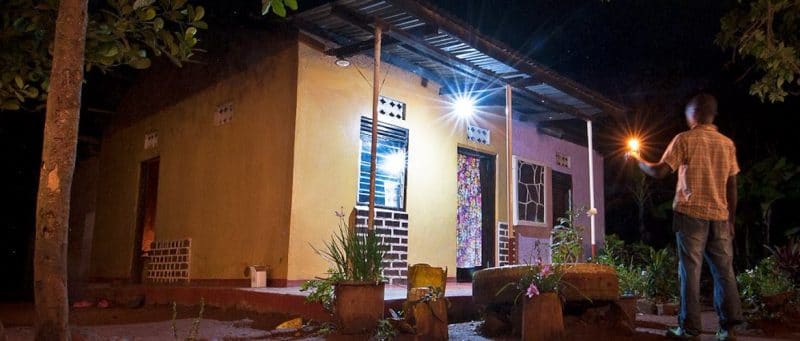The Electricité de France (EDF) group has just launched the "Diaspora energy by EDF" platform. The objective of this initiative is to solicit the contribution of the African diaspora to the electrification of rural areas in Africa. South of the Sahara, off-grid solutions are preferred for access to electricity for rural households.
One of the largely untapped strengths of the African continent is its diaspora. According to the Statista portal, which uses official data, 1.246 million Africans live in France. This figure will tend to explode with the extension of the census to other European countries, the United States of America and Canada. And these Africans living abroad transfer a lot of money to support their families. According to PricewaterhouseCoopers (PwC), in 2018, the Nigerian diaspora alone transferred more than $23.6 billion as investments or to support their families in Nigeria.
This is equivalent to the gross domestic product (GDP) of a West African country like Senegal in 2019 ($23.58 billion according to the World Bank). Électricité de France (EDF) now wants to capitalise on this source of funding to spread its electrification solutions in Africa. The group, which has invested in several electricity access providers, has just launched “Diaspora Energy by EDF”. The aim of the platform is simple, to give each member of the diaspora the opportunity to finance an off-grid solar system for their family, mainly in rural areas.
The experiment in Ivory Coast
According to EDF, its new platform guarantees its users a secure payment as well as delivery within a maximum of 15 days for Ivory Coast. The West African country will be the first to benefit from this system of financing rural electrification through the diaspora. EDF will rely on its local subsidiary Zola EDF Ivory Coast (Zeci) to deploy its clean energy solutions. The group, whose Africa, Middle East and Eastern Mediterranean division is headed by Valérie Levkov, says that the final recipient (the family in the village, editor’s note) will benefit from the customer service provided by Zeci on site, including assistance with the installation and maintenance of the kits for a period of 5 years.
Read also- AFRICA: universal electrification through off-grid solar mini-grids
The solar kit provided by Zeci consists of a solar panel, a battery for electricity storage, a radio, LED bulbs, ports for mobile phone charging, and an optional television and fan. “The kits are an affordable, sustainable and low-carbon alternative to more polluting energy sources such as oil, charcoal or diesel generators often used in rural areas,” says EDF.
Deployment in the rest of Africa
Subsequently, EDF plans to expand the use of its “Diaspora Energy by EDF” platform to other African countries where the group is already present. In the solar home systems segment, for example, the group has invested in other successful electricity access solution providers such as the British Bboxx through its subsidiaries in Togo and Kenya.
While the establishment of this platform for financing solar home systems for rural households is in itself a major innovation given the dynamism of the African diaspora, it should be noted that the idea is not new south of the Sahara. Already in 2019, the Nigerian company Community Energy and Social Enterprise Limited (Cesel) launched the Diaspora-Power (DPower) initiative with the aim of mobilising $1 billion from the remittances sent home by the Nigerian diaspora each year. Cesel planned to use these funds to finance access to electricity through green mini-grids, which are gaining momentum in Nigeria.
Jean Marie Takouleu







